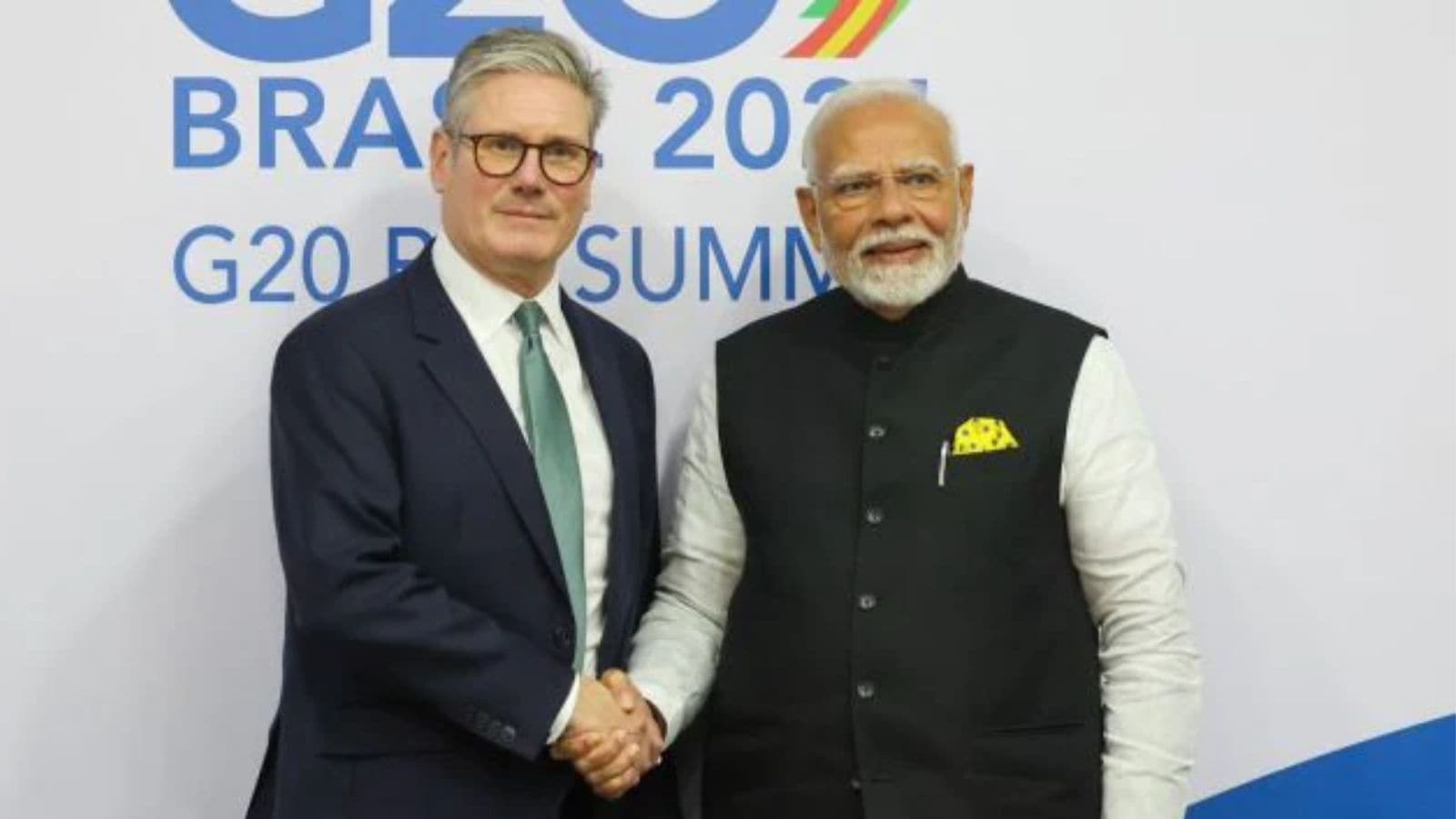India and the UK appeared close to signing a trade deal on several occasions—first under former UK Prime Minister Boris Johnson, who had set a Diwali 2022 deadline, and later under Indian-origin British Prime Minister Rishi Sunak—but the agreement was ultimately concluded against the backdrop of tariff pressures from US President Donald Trump.
A statement released by the UK suggested that the agreement was finalised after “round-the-clock negotiations” that continued until last week, when Business and Trade Secretary Jonathan Reynolds and Commerce Minister Piyush Goyal held the final round of talks in London. Negotiations had first begun in 2013 but were abandoned due to differences.
Despite continuing differences on environmental and labour-related issues, both countries seized a historic geopolitical opportunity—amid growing anti-China sentiment in the West and India’s increasing openness to integrating more fully into global supply chains, something that India lagged a decade ago.
The India–UK agreement is particularly significant as it marks India’s first full-fledged trade deal with a Western nation. While India has signed a partial agreement with Australia, negotiations for a comprehensive deal have yet to be concluded.
The Trump-era tariffs have reignited political momentum for trade agreements. Trade deals are now increasingly viewed through a geo-strategic lens, with greater involvement from the Ministry of External Affairs and the Prime Minister’s Office—apparently aimed at countering China and positioning India as an alternative manufacturing hub.
Indian government officials have said the UK deal will better position India to negotiate an FTA with the European Union, which could offer broader benefits—not only for labour-intensive sectors but also for industrial goods.
The UK deal comes at a time when US tariffs on Chinese imports have surged to record highs. However, the US is not alone in seeking to reduce import dependence on China; the UK and EU have also introduced a range of anti-dumping measures to protect their domestic markets.
Story continues below this ad
India signalling openness to trade deals amid US–China tensions could help attract greater foreign investment, as global supply chains are being realigned in response to US tariffs.
Richard Baldwin, Professor of International Economics at IMD Business School, told The Indian Express that as the US and China drift apart in a tariff war, third countries such as India are becoming more attractive trade partners. “The EU is increasingly interested in signing agreements with India,” he said.
“Remember, the US accounts for less than 15 per cent of world imports—85 per cent of the global market remains accessible. Maintaining access through smart FTAs while managing dumping risks is crucial,” he added.
The trade deal with the UK is particularly significant for India’s rapidly growing services sector, as integration with the UK—where 80 per cent of output comes from services—could boost India’s growth. However, the fine print of the deal will provide a more accurate picture.



